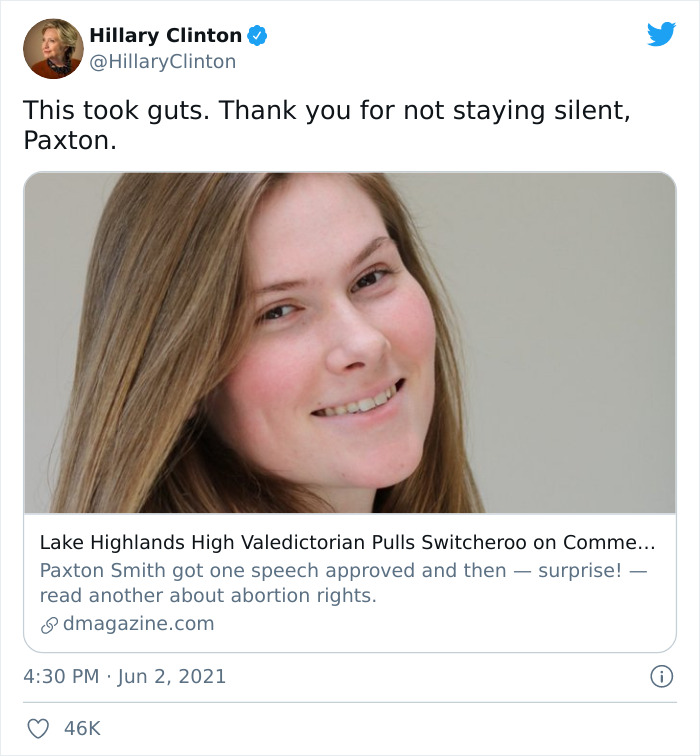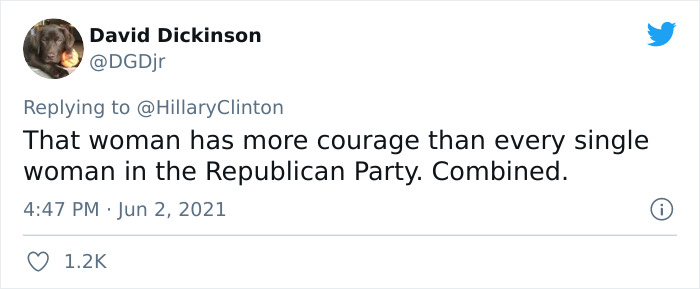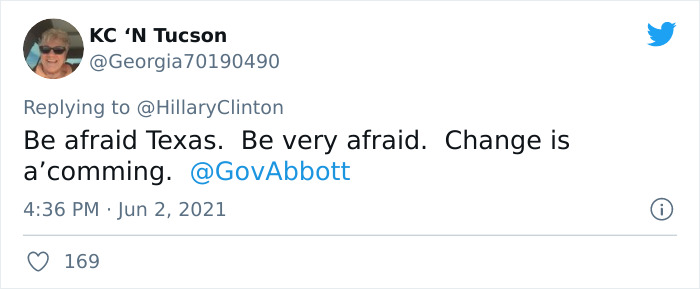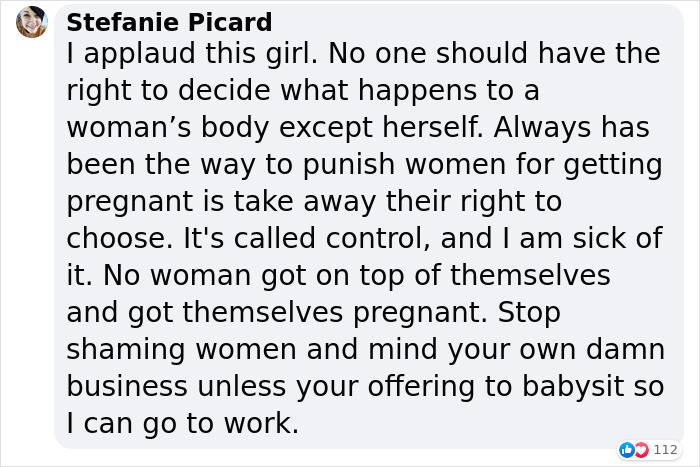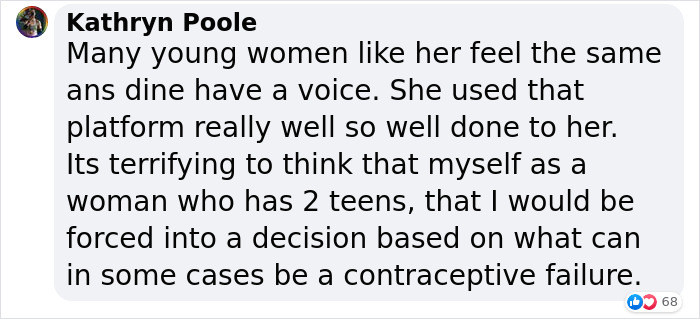Texas Governor Greg Abbott has signed a law banning abortion from as early as 6 weeks. And Paxton Smith has a problem with it.
The valedictorian of Lake Highlands High School’s Class of 2021 decided to abandon her original, approved speech and pulled a last-second switcheroo to talk about what’s most important to her: women’s rights.
When Smith came up to the microphone, she took out a piece of paper secretly tucked into her shirt and addressed the school with confidence. But her powerful words have spread way beyond Lake Highlands. Clips of her remarks have quickly gone viral on social media and are now making headlines around the world.


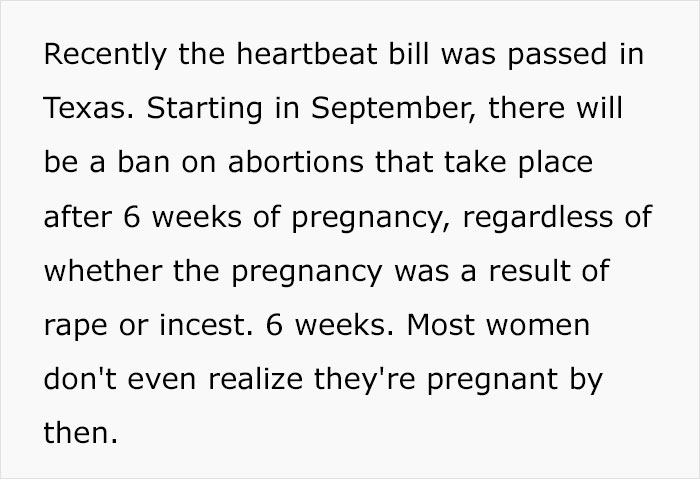
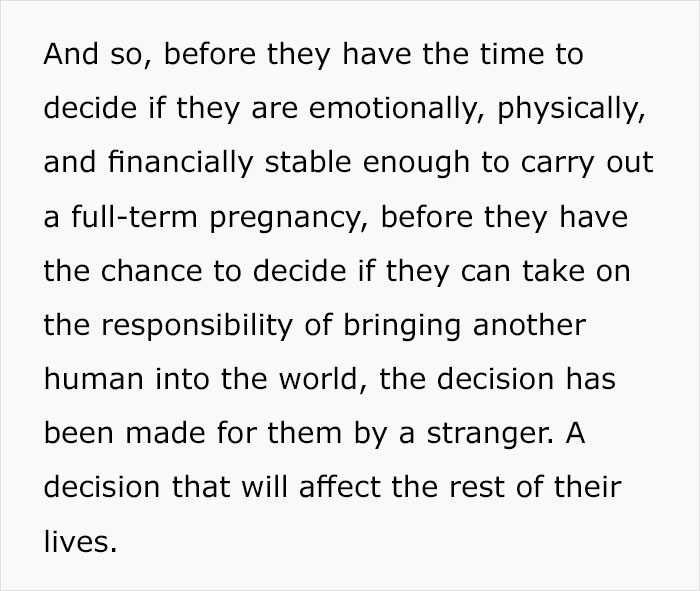
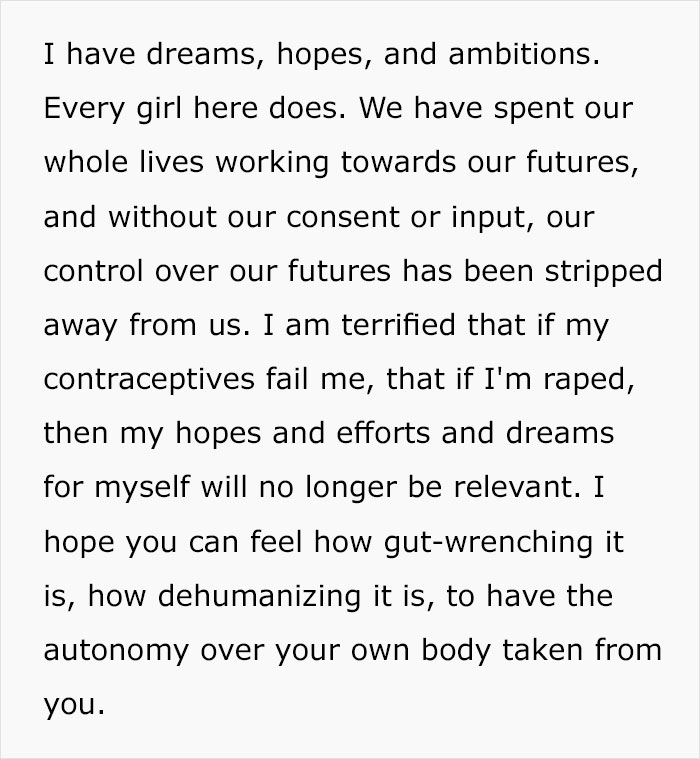

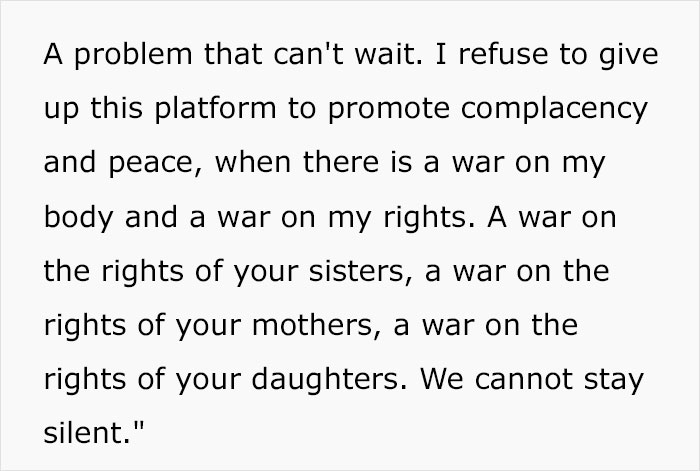
Paxton told BBC she was stunned that the speech was received so well by the audience and school officials, saying: “With every sentence that I made I was shocked that the microphone was not cut off.”
The only people who knew that she was going to change her words were her parents, who have been “extremely supportive” after earlier expressing concerns that the controversial topic “would come back to haunt me in my future”.
The Richardson Independent School District, which Lake Highlands School is a part of, has reportedly said it will review student speech protocols before future graduation ceremonies.
“The content of each student speaker’s message is the private, voluntary expression of the individual student and does not reflect the endorsement, sponsorship, position or expression of the district or its employees,” it explained in a statement to CBS.
Initially, she had planned to talk about TV and the media

Image credits: Juan Figueroa/ Dallas News
To learn more about pregnancy and abortion, Bored Panda contacted general practitioner, medical researcher, and founder of PrimeHealth Clinical Research, Iris Gorfinkel, M.D.
After we asked her when do most women learn they’re pregnant, Gorfinkel said, “I actually looked that up and found that it is, in fact, consistent with my own experience—about three-quarters of the time, women learn at five and a half weeks.”
The time varies because, as Gorfinkel pointed out, most women don’t go exactly 28 days between periods; a lot of them experience periods anywhere between 26 and 35 days. “When the period is late, a lot of women figure ‘Oh, I’ll just wait a few days, and it’ll come up.’ And then when it doesn’t begin, that’s when they get clued in, and that can be five weeks to six weeks,” the doctor explained.
Why is that? “The convention of counting pregnancy starts from the first day of the last period,” Gorfinkel said. “What’s weird about this convention is that women are two weeks pregnant before they realize they’re pregnant (ovulation takes place midway in the cycle). So in an average cycle of 28 days, ovulation — the time a woman is most likely to conceive — is at 14 days after the period starts, and a woman conceives on that day and doesn’t realize she’s pregnant until her period is late, that might be 35 days. She’s by definition, five weeks pregnant. Already, that throws a lot of women off.”

Image credits: Paxton Smith
So that’s three-quarters of women. But what about that one-quarter? After all, that’s still a lot of cases. Well, they don’t realize they’re pregnant until much later. Generally speaking, they’re younger women, they’re more likely to be black or hispanic, and they’re more likely to have low education and low socioeconomic status. “What’s more concerning is that these women also are more likely to not have wanted to become pregnant and to engage in higher-risk behaviors,” Gorfinkel said.
“The downstream effect is that these women are more likely to have a baby with birth defects, they are more likely to give preterm birth, their babies are more likely to have low birth weights as well as wind up in the neonatal intensive care unit (NICU). Furthermore, these women are also more likely to have a natural pregnancy loss [Gorfinkel doesn’t like the term ‘miscarriage’, and has actually written a wonderful piece on why we should replace it].”
“That said, these are the very women who need to have abortion as an available option the most.”
Doctor Gorfinkel thinks that six weeks (or the presence of the fetal heartbeat) is not a good way to mark the limit after which a person can no longer have an abortion. “My own personal belief has always been that this fall squarely into the realm of a woman’s own choice of what she wants to do with her body,” she said. “[We have to acknowledge that] a woman has to undergo all of the risks of the pregnancy, and this includes financial risk, socioeconomic risk, risk to her relationship — which is a tremendous challenge — and risk to her own physicality. Everything from massive changes in her body to hypertension to diabetes, to blood clots that happen more frequently during pregnancy, to the potential for hemorrhage, infection, all the kind of the consequences and the long-lasting consequences of giving birth to a child and, of course, raising that child.”
To conclude, Iris Gorginkel said that she thinks women should be able to choose what they want to do with their bodies. But that choice should be enlightened. “It should not be a choice guided by her doctor, the father of the baby, her family, or even directed necessarily by finances but rather directed by inner peace. Because this is a potentially devastating decision that women face.”
“I think that there is a certain emotional cost that goes along with pregnancy, no matter what the decision is. But the question is, where’s the greater inner peace with that decision?”
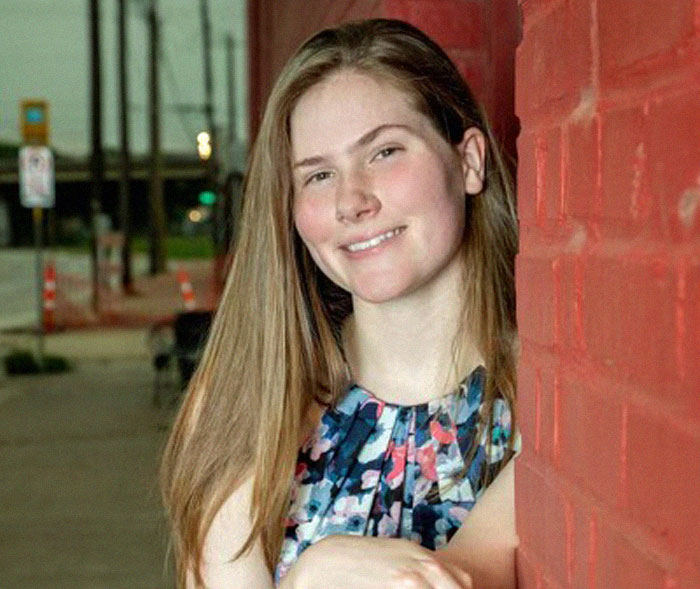
Image credits: lakehighlands
The law bans abortions after the detection of what anti-abortion campaigners call a fetal heartbeat. It is also unique in giving any individual the right to sue anyone who knowingly “aids and abets” an abortion, meaning that people could sue, say, friends and family who help someone obtain an abortion. Or an Uber driver who simply drove the woman.
Healthcare workers and women’s rights groups have heavily criticized the law, which will take effect in September if it is not stopped by a court.
In May, Texas became the latest and largest US state to pass abortion restrictions. The news came just days after the US Supreme Court agreed to hear a case that could upend the nationwide legal right to abortion, laid out in the landmark 1973 Roe v. Wade ruling.
Here’s what people said after listening to Paxton’s thoughts on abortion
